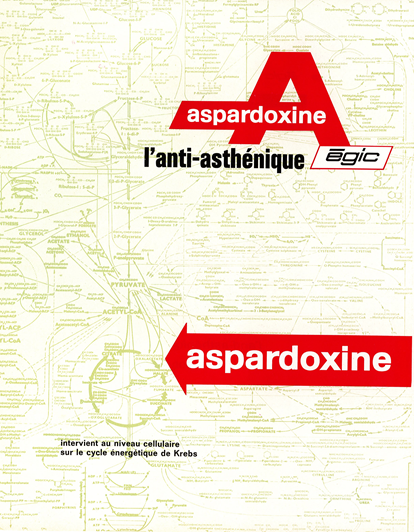Aspardoxine® was a vitaminic preparation containing pyridoxine (vitamin B6) used to treat asthenia and fatigue. The drug, as a coated tablet, was prescribed to patients presenting a muscular asthenia after major physical efforts, or to patients suffering from asthenia-associated diseases after a surgical intervention.
Pyridoxine is an important co-factor for many biochemical reactions in cellular metabolism related to the synthesis and catabolism of amino acids, fatty acids, neurotransmitters. Deficiency of pyridoxine results in impaired transcellular signaling between neurons. It can lead to muscular convulsions, hyperirritability, and peripheral neuropathy. The neurological side effects due to excessive vitamin B6 intake are rare and only occur with high daily doses and/or longer treatment duration. In ageing populations, B vitamin deficiency (not only B6) has been linked to cardiovascular disorders, cognitive dysfunction, osteoporosis, and can increase the risk of developing degenerative diseases, particularly cardiovascular disease, cognitive diseases and osteoporosis. Pyridoxine-containing supplementations are proposed. Vit B6 may be beneficial also for controlling postprandial hyperglycemia. The product Aspardoxine® is no longer used today but other types of pyridoxine-containing dietary supplements are largely used (notably B6 combined with magnesium, and other B6 vitamers (pyridoxine, pyridoxal, pyridoxamine)).
An illustration of the metabolic complexity around the Krebs cycle. Pyridoxine is converted to its biologically active form pyridoxal-5-phosphate (structure below) and serves as a cofactor in nearly 200 reactions in the central nervous system. The conversion implicates the enzyme pyridoxine 5′-phosphate oxidase (PNPO), which deficiency can cause a range of neurological and systemic manifestations, including epilepsy.





